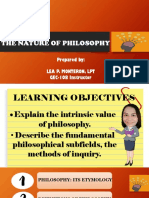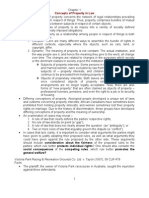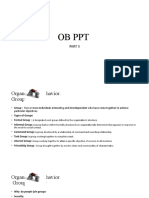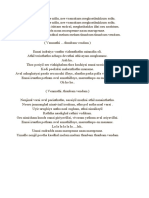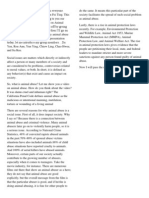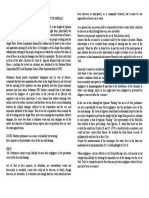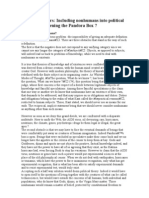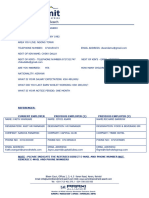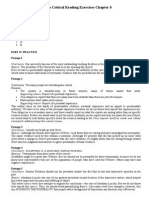0% found this document useful (0 votes)
11 views2 pagesWeek 1 Lesson Philo
The document outlines an introductory lesson on the philosophy of the human person, focusing on key objectives such as distinguishing holistic perspectives and recognizing the value of philosophical reflection. It defines philosophy as the study of reality, knowledge, morality, and reasoning, and discusses its traditional branches including metaphysics, epistemology, ethics, logic, and aesthetics. Additionally, it includes student activities aimed at engaging with philosophical questions and concepts.
Uploaded by
alexandraaferminCopyright
© © All Rights Reserved
We take content rights seriously. If you suspect this is your content, claim it here.
Available Formats
Download as DOCX, PDF, TXT or read online on Scribd
0% found this document useful (0 votes)
11 views2 pagesWeek 1 Lesson Philo
The document outlines an introductory lesson on the philosophy of the human person, focusing on key objectives such as distinguishing holistic perspectives and recognizing the value of philosophical reflection. It defines philosophy as the study of reality, knowledge, morality, and reasoning, and discusses its traditional branches including metaphysics, epistemology, ethics, logic, and aesthetics. Additionally, it includes student activities aimed at engaging with philosophical questions and concepts.
Uploaded by
alexandraaferminCopyright
© © All Rights Reserved
We take content rights seriously. If you suspect this is your content, claim it here.
Available Formats
Download as DOCX, PDF, TXT or read online on Scribd
/ 2






















































